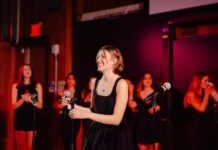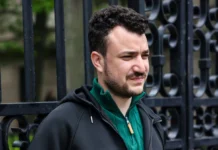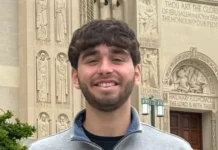In 2016, the College of Arts and Sciences at UVa proposed the layout for a brand-new curriculum designed to immerse first-year students into an “innovative, comprehensive, and interdisciplinary” learning environment. The Class of 2021 is the first class in the history of the University of Virginia to be able to take part in this groundbreaking experiment.
The New College Curriculum is composed of several distinct components, the most prominent being the Engagements, a series of four 7-week classes intended for first-year students based on ethical, creative, and critical thinking.
The Engagements themselves are split into 4 categories: Engaging Aesthetics, Engaging Differences, Ethical Engagement, and Empirical & Scientific Engagement. They are taught by the “College Fellows,” a group of carefully-selected Arts and Sciences faculty.
“The College Fellows faculty were selected from a competitive application process,” said Sarah Betzer, a co-director of the program and professor of the Engaging Aesthetics class Art: Inside/Out.
In order to apply, each professor had to submit an essay detailing their reasons for wanting to teach an Engagement.

“My reasons for [submitting an application] centered on several things, including that I am dedicated to the Liberal Arts and feel that a broad interdisciplinary approach to topics provides the best undergraduate education,” explained Deborah Roach.
Roach teaches an Empirical & Scientific Engagement titled How Has Evolution Shaped Who We Are?
“I was totally free to create my own topic – which is great fun!”
The purpose of the Engagements lies in the title – but how exactly do they engage first-year students? In what ways are these classes different from those in the traditional curriculum that has governed the College of Arts and Sciences for the past 40 years?
“There is a lot of nervous energy in the Engagements that is contagious. The students are a bit nervous, of course…but we the faculty are on edge too. [Both] the students and the faculty sense that we are on a common voyage,” said Tico Braun, professor of the Engaging Differences class The Individual and the Society.
“As scholars and teachers we are not delivering knowledge so much as we are asking questions. So we are both exploring together.”
“I think that to be engaged means to be actively involved in a topic or a discipline,” added Professor Roach. “It is not passive learning but is, rather, an active process that I hope will result in a life-long interest.”
The New College Curriculum is still being tested, and many of the faculty agree that there is still much to improve. There is a hope, however, that the Curriculum and its Engagements will see a successful future and find a permanent home at UVa.
“My hope is that in a few short years – maybe even by the next year – the new curriculum, and the Engagements in particular, will be a reason for which students apply to the University and want to come here,” stated Professor Braun. “That would be just great.”
















